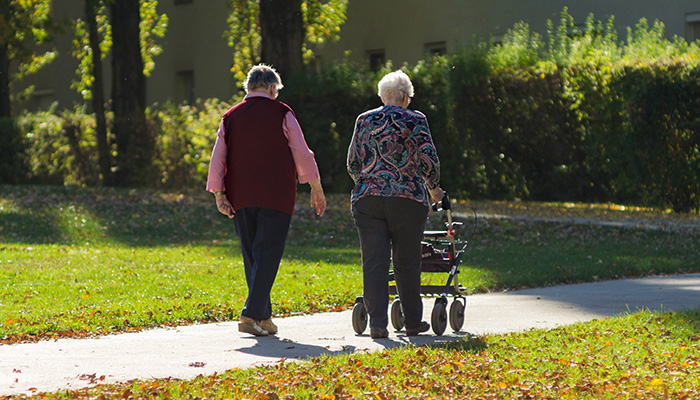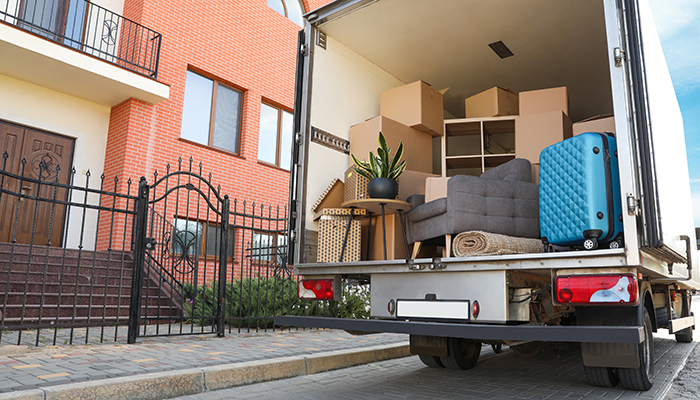Aging Well Long Island
Helpful tips for family caregivers
June/July 2014
We so value independence in our culture, it’s difficult to acknowledge that we may not be able to do everything ourselves. This month we offer tips about how to identify your needs as a family caregiver and ask for help. We also continue our series about balance and falling and offer insights if you are considering having your relative move in with you.
Explaining your needs to others
 Are you worried that asking for help sounds like whining? You may believe you “should” be able to do it all without assistance. Or think you are “just” doing what any good or loving daughter (or son, or spouse) would do. Like many caregivers focused on being gracious, you may have become used to minimizing the personal impact of caregiving.
Are you worried that asking for help sounds like whining? You may believe you “should” be able to do it all without assistance. Or think you are “just” doing what any good or loving daughter (or son, or spouse) would do. Like many caregivers focused on being gracious, you may have become used to minimizing the personal impact of caregiving.
Wanting help does not mean you are weak. And being frustrated, tired, or resentful does not mean you don’t care for the elder in your life. It simply means that there is more on your plate than can be done alone.
Before you ask for help, define for yourself very specifically how caregiving has affected your life in these key areas:
- Physically. Are you getting enough sleep? Eating right? Exercising? Keeping up with doctor and dental exams?
- Emotionally. Are you frustrated with making all the decisions alone? Lonely or bored by a restricted lifestyle? Sad or guilty because nothing you do can make your relative better?
- Financially. Are you losing income because you can’t work the hours you used to? Paying for your relative’s expenses? Unable to afford to hire someone to give you a break?
- Socially. Are you missing out on fun activities? Is everything you do focused on being productive?
Once you name the impact, it can be easier to ask for help more directly. Consider:
- “I’m overdue at the dentist. I need you to take care of Mom while I go. Which day next week works best for you?”
- “It’s time for another decision about Dad’s care. I’d rather this were a joint decision. Can we schedule some phone time for tomorrow?”
- “Getting to church this Easter feels really important to me. I’d like to swap some time with you so I can go enjoy my grandkids.”
Return to top
Should Dad move in?
Combining households has many benefits: Less hassle running back and forth between two residences, less worry about Dad eating well and remembering his meds, more family social time for him, cost savings on rent and utilities, etc.
But if things do not work out, disentangling could cause hurt feelings and damage your relationship. Consider these questions before you move in together.
Relationships and lifestyle
How do you and Dad get along? How does he get along with others in the house? How will he fit in with household routines? Will he eat what you eat? How will he cope with children? What about pets? Will he join you on vacation? Can you set boundaries and negotiate when issues arise? Are others in the house up for this change?
Physical space
Can you accommodate him and still have privacy? Will he have his own bathroom? Sitting area? TV? Do you need to install grab bars or a riser seat on the toilet? Is there space for his clothes and possessions?
Time and money
Will he expect to have a lot of your time and attention? Will he need you to drive him places? What should you ask him to pay (for rent, utilities, food, cable)? Will you be paid for any of your assistance?
Care needs
If Dad’s needs increase, are you comfortable doing personal care (bathing, dressing, help with toileting)? What about having someone come into your home to care for him?
If you decide to go ahead with an invitation, review your plans in detail with your relative and other family members. A written agreement is essential. Have it reviewed by an elderlaw attorney. And review it every few months afterward. You want to make sure everyone has the same vision and expectations!
Return to topWhen Mom worries about falling
 Many older adults who have fallen believe it is best to “stay safe” and avoid falling again by restricting their activities.
Many older adults who have fallen believe it is best to “stay safe” and avoid falling again by restricting their activities.
Unfortunately, that’s the worst thing they can do! Inactivity is a path to reduced strength and mobility, which increases the risk of a fall and injury.
One of the most important things you can do is keep your worried relative up and moving.
Here are some tips:
Talk about the fear
Although you don’t want to push, it is important to talk with your relative about the risks of inactivity. This can pave the way to discussion of how to work with his or her (understandable) fear. Putting things in terms of your own concerns may be helpful. It sounds less blaming or demanding.
For example:
- “I’m concerned, Mom, that the fall you took in December has made you extra fearful. For sure, no one would want to go through that again! But I’ve done some reading and learned that being inactive actually makes you more likely to fall a second time. What can we do to build your strength and confidence?”
Offer strategies for change
Suggest ways that you can help your relative overcome his or her fear.
- “Let’s talk with your doctor about what’s worked for other patients in this situation.”
- “Let’s practice balance exercises together, and take a few laps down the hall. I’ll be here so you don’t have to worry.”
- “Let’s ask for a referral to a physical therapist. They can give you tips about walking, how to better catch yourself, and how to get up safely if you did fall again.”
- “Let’s take stock of what’s different now than when you fell. You were sick then.” (Or, “You’ve got grab bars now” “You’re not on that medication anymore.”).
Return to top


